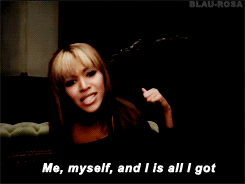Lizzo wants you to kiss yourself in the mirror. Miley wants you to buy yourself flowers and write your name in the sand. And according to Ru Paul, if you can’t love yourself, how the hell are you gonna love someone else?
Self-love has been having a moment. But it hasn’t always been that way.
A brief history of self-love
Throughout history, self-love has been seen as a sign of narcissism, selfishness and vanity.
Aristotle thought that most self-love came from a desire to achieve unwarranted personal gain. And various religions have debated whether self-love is sinful.
But in recent years, self-love has gained a more positive rep. Through increased awareness around mental health, LGBTQ+ pride, 3rd and 4th wave feminism, and anti-racist movements around the world, self-love has become a powerful socio-political tool.
And rightly so—in the face of systemic oppression and prejudice, self-love can be a wonderful force for change.
Today, social media has popularised the concept of self-love through the lens of self-development. And this is where it gets tricky.
Because the pressure to love ourselves can actually feel really hard. Sometimes, it can even dial up the volume of our inner critic.
Let's say your social feed is full of people buying themselves roses, going on solo dinner dates and cancelling all their plans to have a bubble bath. You might think 'amazing!' and copy them. Alternatively, your inner critic could tell you 'Buying yourself flowers is stupid and cringe' or 'It would be so sad and embarrassing to go for dinner alone'.
And that gap between what we’re told we’re supposed to feel vs how we actually feel can get pretty big—which is an absolute field day for Russell.
If you struggle with self-love, try this instead
If you relate to any of the above, that’s not to say you can’t work on having a more positive relationship with yourself.
What might help is to reframe the way you’re thinking about being your own best friend.
Instead of striving for self-love, try choosing self-understanding and self-acceptance.
The thing is, it can feel impossible to love every part of ourselves. None of us are perfect and we never will be.
But when you shift your mindset and try to accept all the parts of yourself (including your inner critic!) it gets a bit easier. Cultivating self-awareness and truly understanding yourself is the first step. And you’ll probably find that the more you do this, the higher your self-compassion. Then you can counter your inner critic with some inner kindness, and turn down its volume.
How to work on self-acceptance
Self-acceptance can be a lifelong journey, but the key is to strengthen your self-awareness as much as possible.
Working with a therapist or coach can be an amazing way to do this. But of course, that’s not accessible to everyone.
One thing you can start doing today? You know what we’re going to say…yep, journaling.
We’ll sing journaling’s praises until the cows come home because it really is one of the most effective ways to get to know yourself. If you’re not sure where to start, check out this list of some of our favourite prompts.
Another important part of self-awareness is embodiment—being in your body and understanding how to regulate your autonomic nervous system. So before you start practices like journaling or therapy, it’s a good idea to do some grounding techniques (like breathwork, meditation and self-touch) to get into the right headspace.
And lastly, we’re lucky enough to live in a time where there are tonnes of free or low cost resources that can help you educate yourself on all things self-development. So try reading, listening to podcasts or watching TED Talks—just be mindful that not everyone on Tik Tok is the ‘expert’ they claim to be.
How do you feel about self-love?
Everyone’s different and perhaps you find self-love really easy. Whatever the case, we’d love to hear your thoughts.
We’ll be back next week with another topic that Russell will probably hate. So make sure to subscribe if you haven’t already.







